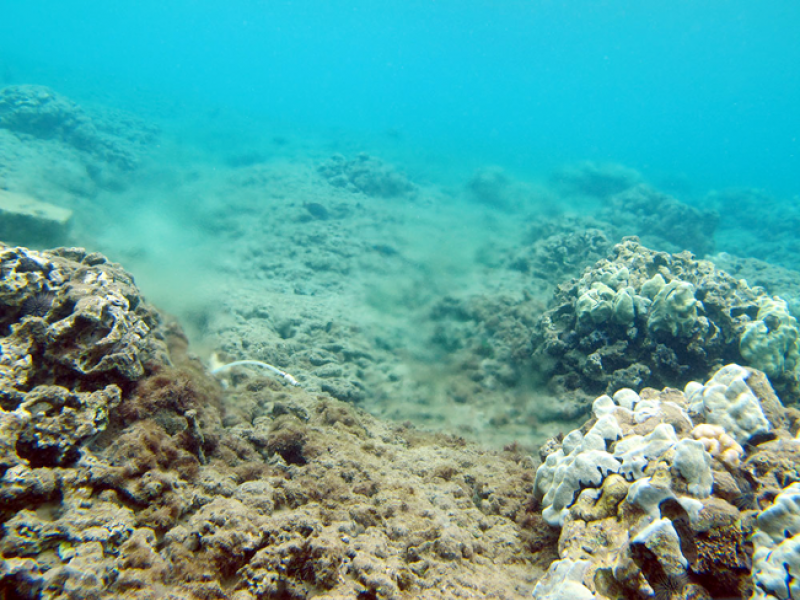Trump Administration Reverses Position in Supreme Court Hawaiʻi Clean Water Act Case
Administration sides with industry to allow polluters to use groundwater as sewers
Contact
Yesterday, the Trump administration’s Environmental Protection Agency issued guidance that pollution discharges into waters of the United States via groundwater are categorically excluded from Clean Water Act regulation. This formally reverses the administration’s position in an upcoming Supreme Court case, Hawai‘i Wildlife Fund v. County of Maui, and undermines the federal law protecting the nation’s rivers, lakes, and other waterways of the United States.
In February, the U.S. Supreme Court agreed to take up an appeal of this Clean Water Act case in Hawaiʻi concerning treated sewage flowing into the Pacific Ocean from injection wells. The County of Maui argues it does not need Clean Water Act permits for such an action because it is not discharging directly into waters of the United States. Two lower courts have disagreed with the county’s claims.
The 9th Circuit Court of Appeals upheld a lower court’s decision that the Maui wastewater facility was violating the law for these actions. EPA filed a friend of the court brief in the 9th Circuit agreeing that the County was acting illegally. EPA’s new guidance reverses its position on groundwater pollutants, effectively giving chemical plants, concentrated animal feeding operations, oil refineries, and other industrial facilities free rein to discharge pollutants indirectly into the nation’s waterways without Clean Water Act permits. The Supreme Court will ultimately decide if these actions are legal.
Earthjustice represents four Maui community groups: Hawaiʻi Wildlife Fund, Sierra Club-Maui Group, Surfrider Foundation and West Maui Preservation Association. The following is a statement from David Henkin, Earthjustice lead attorney:
“While unsurprising, it is nevertheless disappointing that Trump’s Environmental Protection Agency has reversed the position that every other administration — Republican and Democratic — has consistently taken since the Clean Water Act was enacted. EPA’s new position would allow polluters to dump their waste and toxic discharges into groundwater and would hold no one accountable when that pollution flows into oceans, lakes, and rivers. Two lower courts found that position absurd, and we will do everything in our power to convince the Supreme Court to reach the same conclusion.”
Background
Kahekili Beach is located on the west side of Maui. In 2011, a U.S. Environmental Protection Agency-funded study used tracer dye to show conclusively that the Lahaina sewage flows with the groundwater into near-shore waters off Kahekili Beach.
Last March, the 9th U.S. Circuit Court of Appeals ruled that Maui County has been violating the federal Clean Water Act since its Lahaina Wastewater Reclamation Facility was first put into operation in the early 1980s. Serving West Maui, the Lahaina facility injects 3 to 5 million gallons of treated sewage each day into groundwater, which then transports the sewage to the ocean. Though treated, the sewage still contains a variety of contaminants, including excess nutrients that have been linked to algae blooms and are shown to damage coral reefs.
Four Maui community groups represented by Earthjustice sued the county in 2012, seeking to protect the sensitive coral reefs at Kahekili from harmful pollution. In 2017, scientists from the U.S. Geological Survey, the State of Hawaiʻi’s Division of Aquatic Resources, and other experts published a peer-reviewed study documenting the ongoing and serious harm to the reef at Kahekili associated with the Lahaina facility’s discharges to the ocean.
Over the past four decades, the Environmental Protection Agency and states across the country have used their Clean Water Act authority to prevent a variety of industries — including wastewater treatment facilities, chemical plants, concentrated animal feeding operations, mines, and oil and gas waste-treatment facilities — from contaminating our nation’s waters via groundwater. The final outcome of this case could determine whether the public will continue to be protected from these harmful polluting activities.

Additional Resources
About Earthjustice
Earthjustice is the premier nonprofit environmental law organization. We wield the power of law and the strength of partnership to protect people's health, to preserve magnificent places and wildlife, to advance clean energy, and to combat climate change. We are here because the earth needs a good lawyer.